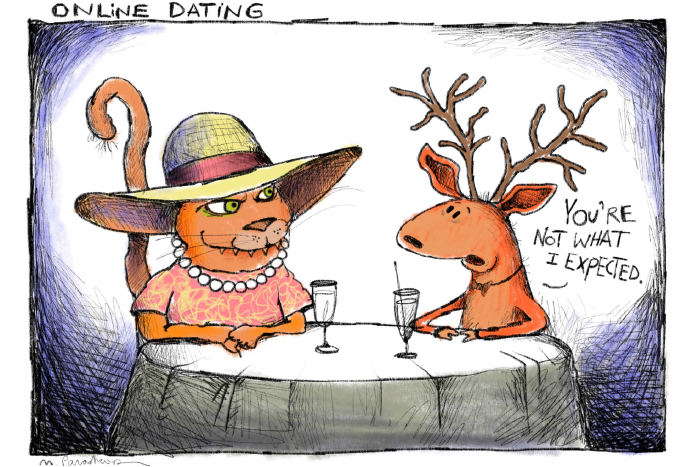Not Lions: Scientists Say Cougars Could Eat All East End Deer

Every Tuesday, I look forward to reading the Science section of The New York Times. They have interesting articles about the solar system, mathematics, large squids, medical discoveries and caves full of bats.
Last Tuesday, what the Science section had to say brought me up short.
The most widely read story I’ve ever written was about the time a South African billionaire, observing that deer are a problem in the Hamptons, imported 23 South African lions to his estate in Quogue so that, on one single night, he could let the lions loose and have them eat up all the deer on eastern Long Island. People who picked up Dan’s Papers that week were told to stay in their homes for the 24 hours that the lions were out. Some people believed this story was true and actually did that. Others knew it was all just a hoax. No lions appeared. No deer were eaten. But the story went viral and received about a million hits on the internet.
Last Tuesday, a scientist was interviewed in the Times who has proven our plan would work, and for real, though not with lions, but with cougars. The plan for cougars to eat the deer was made by Laura R. Prugh, a wildlife scientist at the University of Washington; Sophie L. Gilbert, a wildlife ecologist at the University of Idaho; and some colleagues. Well researched, the plan appears in the journal Conservation Letters, where the Times read it.
According to Dr. Prugh and the team, the number of people killed by deer in the 19 northeastern states where they are a problem is about 200 a year. The deer collide with cars. They don’t intend to. It just happens. And people die.
The number of deer who die is not calculated in this article, but of course it is many times that. Also calculated is an estimate of how many people would die from cougar attacks once they have eaten up all the deer, and the answer is fewer than 30 people a year. So there you have it. A tremendous savings. Add into that the number of humans injured in car-deer collisions, about 21,000 in the course of a 30-year span, and you see the real magnitude of the problem in pain and suffering. The cost of treating the injured would decline by $2 billion if the cougars were here. That’s a tidy sum.
This is not a joke. Dr. Prugh has teamed up with other scientists to study how many deer a cougar might kill—about 259 over the six-year life span of a cougar—how much forest is needed to sustain a cougar population—850 square miles. They even considered the number of deer eaten that would be in addition to those dying from old age, starvation or illness. They also noted that killing adult deer would not immediately reduce the deer population because there are so many fawns around, and it would only begin to add up if the adults finally stopped mating for lack of anybody to mate with.
Finally, they studied the cougar itself. Cougars, according to Wikipedia, were declared extinct in the northeastern United States in 2014. Though Dr. Prugh is not advocating bringing wild cougars in from other parts of the country where they thrive, the story does note an uptick in cougar sightings in recent years. One was spotted in Connecticut earlier this year.
On the other hand, Dr. Prugh agrees, it might be difficult to get the general population to welcome cougars. “The idea of being killed in a car crash with a deer just doesn’t scare people the way the idea of a cougar leaping on your back in the woods does,” she told the Times. But if people were given the information about the good the cougars could do, she said, they “might be a little more accepting even if they are still scared.”
I spoke to the South African Billionaire, Hans Van der Klerk, about all this and he said he’d like to meet Dr. Prugh to hash this thing out. He is perfectly willing to trot out the lions again and would like to coordinate with her so as not to do it on the day she trots out the cougars.



